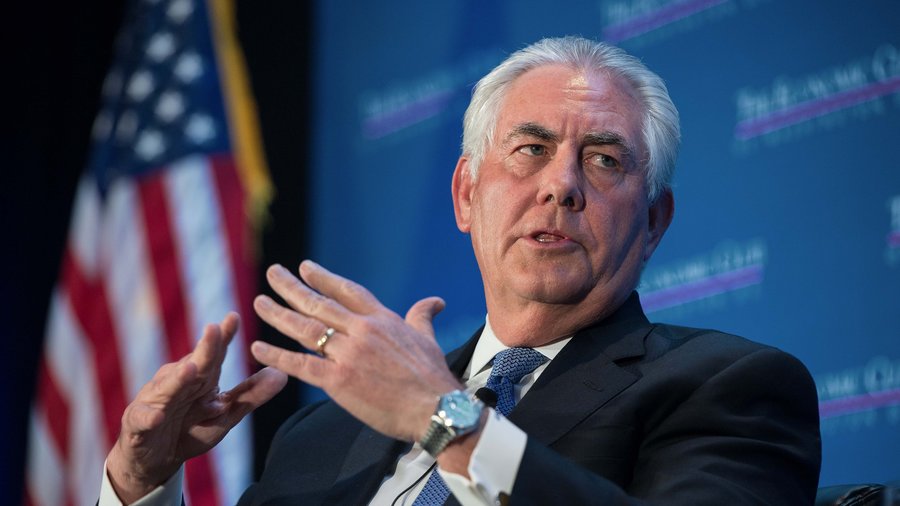China’s influence in Africa
March 10, 2018 | Expert Insights

The United States is concerned over China’s growing influence in the African continent.
China’s investments in Africa have dramatically increased since the 90s and Washington is worried regarding the risks presented by increased African indebtedness.
Background
United States and China are two of largest economies in the world. Both countries consider the other as a partner in trade and a challenger in geopolitics. Diplomatic relations between US and China was first established in 1844 with the Treaty of Wanghia. This agreement allowed the US to trade in Chinese ports. After the Qing Dynasty was overthrown, in 1911, US recognized the legitimacy of the Republic of China (ROC) government.
In contemporary times, the two countries have established a robust framework of trade. Currently, the US-China trade relationship supports around 2.6 million jobs in the United States. In 2015, China purchased $165 billion in goods and services from the United States.
In 2017, the ties between US and China have been tense during periods. US President Donald Trump has expressed his frustration over deficit in trade with China. He has also repeatedly criticized China for not being aggressive while countering the threat of China North Korea. Much of the conflict between US and China presently is due to the disputed area of South China Sea.
In the recent years, China under the leadership of leader Xi Jinping, has expanded its influence across the world. It has come out aggressively in favor of free trade and has become involved with far flung regions especially Africa. In fact, the African continent is a source for raw materials for China, and China is a huge investor in infrastructural (rail and road), and mining projects in the region.

Analysis
US authorities have expressed concern over China’s expansion and growth in the global stage. US has repeatedly blocked Chinese conglomerates from acquiring American companies due to this concern.
There are increased concerns within the US government amid reports that China is looking to gain control of a major commercial port on the Horn of Africa. This would further consolidate the country's influence in the critically strategic region.
US Secretary of State Rex Tillerson has recently spent a week on an official visit to the Sub Saharan region. During this trip, he met with key leaders in order to reaffirm America’s interest in Africa. Earlier he had spoken at George Mason University and was critical of China.
"Chinese investment does have the potential to address Africa's infrastructure gap, but its approach has led to mounting debt and few if any jobs in most countries," said Tillerson. "When coupled with political and fiscal pressure, this endangers Africa's natural resources and its long-term economic and political stability."
Asia analyst Gordon Chang during a recent congressional hearing compared China’s growing influence to a “new form of colonialism”. "Once it locks in countries and makes them dependent," said Chang, "Beijing gets their support for geopolitical goals, and one of these goals is undermining democracy."
China’s Foreign Minister Wang Yi recently addressed these concerns and criticism from the West. He said, “Africa is facing challenges of maintaining peace and stability, and of promoting development and revitalization. In response to needs, China will step up mediation in regional flashpoints and cooperation with African countries on unconventional security threats such as terrorism, piracy and natural disaster, and help them build capacity to ensure their own peace and security.”
Assessment
Our assessment is that the US is increasingly concerned with China’s soft power strategies. We have previously covered China’s advancements in using pioneering technology to make significant advances in their military. As China’s continues to gain a larger foothold in Africa, US’ own influence in the strategically important region would fade.








Comments